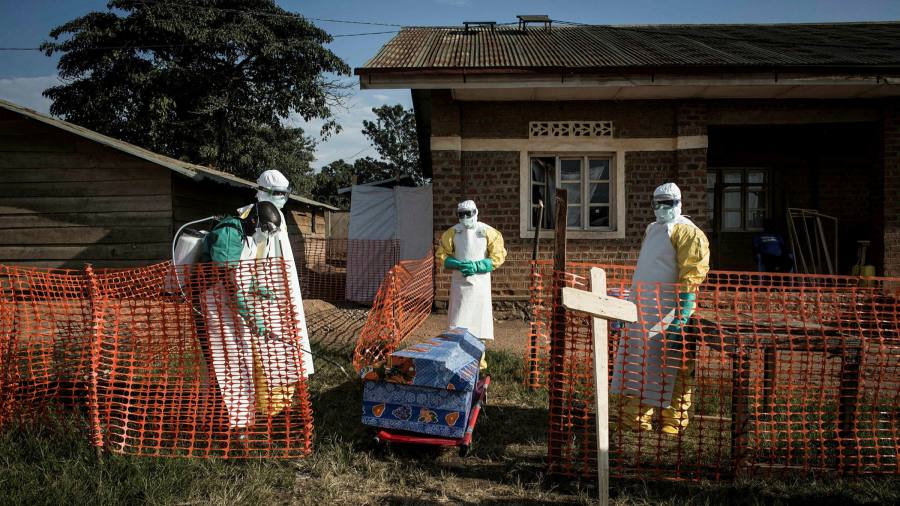[ad_1]
The Democratic Republic of Congo has identified a new case of Ebola in the north-east of the country, raising fears of a fresh outbreak of the deadly haemorrhagic fever.
The National Institute of Biomedical Research confirmed that it had been identified on Sunday in samples taken from a patient with symptoms who had sought treatment. “We have another episode of the Ebola virus in the east,†health minister Eteni Longondo told state television. “It was a farmer, the wife of a survivor of Ebola, who showed typical signs of the disease on February 1.†On February 3, the 42-year-old mother died in Butembo, in the province of North Kivu, according to the health ministry.
The resurgence of Ebola in a region plagued by rebel violence comes as the central African country is facing a second wave of coronavirus cases that is stronger than the first. In December, the Democratic Republic of Congo imposed a curfew and other measures after a jump in cases. Jean-Jacques Muyembe, head of the National Institute of Biomedical Research, has said that the “evolution†of the second wave “is faster than that of the first waveâ€. While the country has limited testing capacity, it has recorded almost 23,500 confirmed cases of coronavirus and 679 fatalities as of Sunday, according to the World Health Organization.
Ebola is highly contagious and is spread through contact with bodily fluids, causing haemorrhagic fever with severe vomiting, diarrhoea and bleeding. Containment requires the quick isolation of suspected patients and the safe burial of the dead.
The government has started tracing those who came in contact with the deceased to try to “eradicate the epidemic as soon as possibleâ€, said Longondo. The WHO said its epidemiologists are also on the ground investigating the case. More than 70 contacts have been identified.
“The expertise and capacity of local health teams has been critical in detecting this new Ebola case and paving the way for a timely response,†added Matshidiso Moeti, WHO Regional Director for Africa. “WHO is providing support to local and national health authorities to quickly trace, identify and treat the contacts to curtail the further spread of the virus.â€
The infection would potentially mark the start of the 12th outbreak of the virus in the central African nation since the first cases were detected in 1976, and the fifth occurrence in the past four years — and it was detected just three months after another epidemic, this one in the western province of Equateur, was declared over in November.
Samples from the latest Ebola patient were sent to the National Institute of Biomedical Research’s main laboratory in Kinshasa to identify the strain and to determine its link to the previous outbreak, the WHO said, adding that the last epidemic, which lasted for nearly two years, was the second largest in the world and killed almost 2,300 people. “It is not unusual for sporadic cases to occur following a major outbreak,†the WHO explained.
The institute is led by Muyembe, who has helped lead the fight against Ebola for four decades, including overseeing clinical trials that contributed to the approval of an Ebola vaccine and discovery of a treatment two years ago.
[ad_2]
Source link





